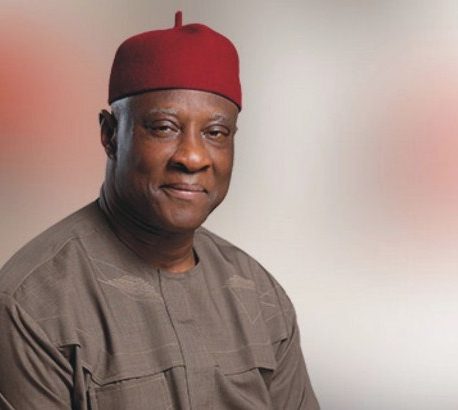A former Minister of Interior, Captain Emmanuel Iheanacho has said that the solution to the persistent gridlock in the port city of Apapa is to march the volume of containers that come into Apapa with the volume that leave Apapa.
Iheanacho who stated this on the sideline of a book launch in Lagos recently said that if the volume of consignments that come into Apapa far outweighed the volume that leave Apapa, as a result of bad roads and lack of infrastructure the gridlock would persist.
He posited that any solution that would be designed by anyone must take into account the need to march input with output.
According to him,” First of all, you have to clear the backlog and then do what is necessary but I think if you want to reduce that to everyday terms, it means you have to develop additional infrastructure in terms of roads. When those roads that are at the ports were built, this was years ago and overtime, the volume of trade has increase and the character of that trade has changed but the roads have remained static. So, we are bound to have this problem that we have now”.
On the order for the truck drivers to stopping parking their trucks on the brides, Iheanacho who is also the Chairman of Integrated Oil and Gas Limited noted that if truck drivers had been handed such order, it was because there is a lot of trailers that were causing nuisance in the port area.
He further averred that the order may be in an effort to regulate them so that they (government) would then temporarily move them to a park and from there, they can call them in by radio rather than loitering and sitting on the bridges.
“Those bridges are not designed to carry trailers ad infinitum, we don’t want the bridges to fall, we don’t want the port to close”, he said.
While describing creation of transit parks for trucks as a temporary measure, he emphasized on the need to constantly review the relevant of the size of those transit parks in relation to the trade.
He continued, “It’s the same thing when you talk about congestion because of bridges, we built first mainland bridge, second, third mainland bridge and yet the congestion is there. You have to continuously review the demand on your road space and so, you don’t build infrastructure to make sure that input and output actually matched”.
On the effect of the congestion on the economy of Nigeria, he said,” It causes inefficiency, it causes increase in cost, remember that any cost that is incurred, it doesn’t stand still, it has to be passed on by the traders and eventually the person who buys the goods will have to pay for the demurrage cost, for the extraordinary cost of congestion. So, we don’t want that because that will mean that the poor people will not have enough money to spend on very important things and they will be buying things that are unnecessarily expensive”.
Send your news, press releases/articles to augustinenwadinamuo@yahoo.com. Also, follow us on Twitter @reportersinfo and on Facebook on facebook.com/primetimereporters or call the editor on 07030661526, 08053908817.

